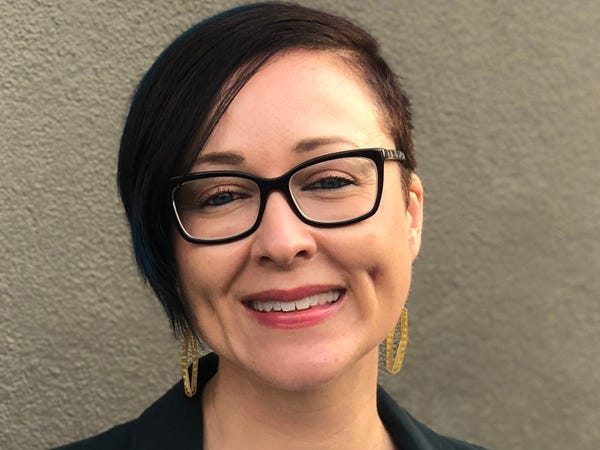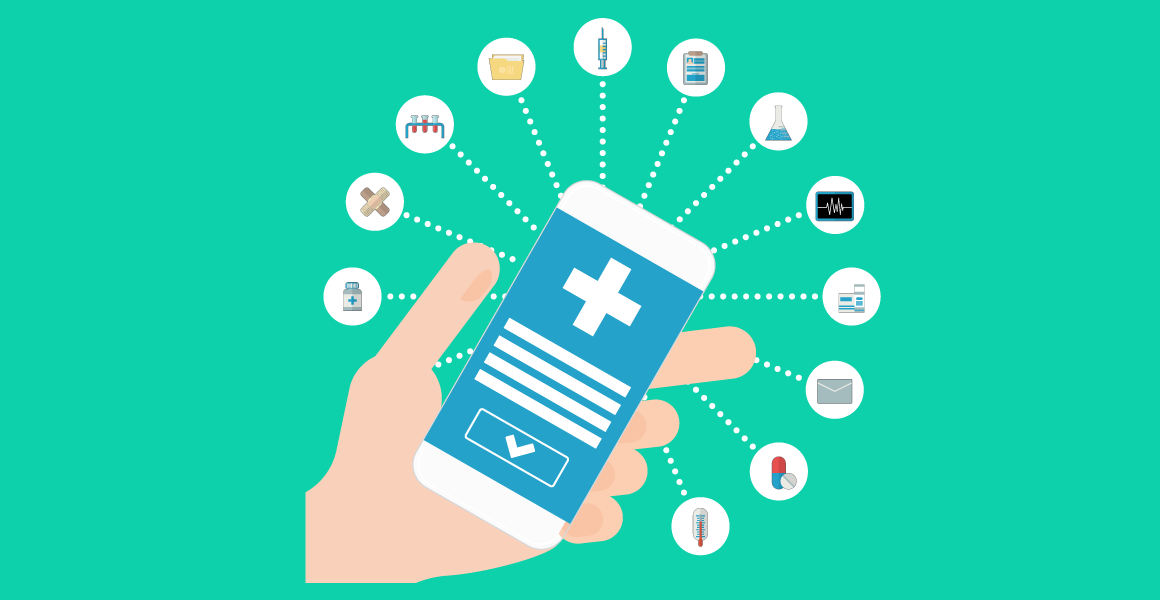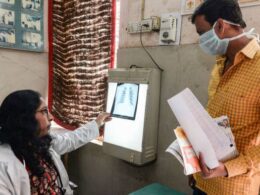Business Insider
October, 5th 2021
- A growing group of advocates is starting to shape what hospital software looks like.
- They’re drawing support from patients eager to access and share their own medical records.
- Some have pushed back, saying patients shouldn’t see sensitive information without medical guidance.
When a car crash in September 2018 left Morgan Gleason temporarily unconscious, her medical records — containing a detailed history of her rare autoimmune disease — weren’t on hand for the emergency response team.
Even when she came to, she wasn’t coherent enough to pull them up on her phone.
Her boyfriend at the time happened to remember a few details about her juvenile dermatomyositis, so paramedics knew just enough to be cautious about treatment. If he hadn’t, and if her hospital in Auburn, Alabama, hadn’t been able to forward records to Atlanta’s Grady Health by the time she was airlifted there, surgeons might have operated on her skull, which could have triggered a harmful autoimmune response, Gleason said.
“I was completely out of commission,” Gleason, 23, told Insider. “I couldn’t talk to anyone about my experience. I couldn’t stand up for myself.”
Her already tenuous survival was made even more improbable by scattered and incomplete health data, Gleason said. The crash, though, is just the starkest example of a problem that Gleason confronts all the time and that she’s trying to fix: These inaccessible health records put her health and life at risk.

People like Gleason are challenging the gatekeepers of medical information, including hospitals and the software companies they use to store their medical records.
Organizing in places like Twitter, they’re lobbying the federal government to make medical records easier to download and transfer.
In doing so, they’re shaping the future of patient information, one of digital health’s most important resources.
They say they’re motivated by their own poor experiences.
Insider spoke with six people who’d faced inconvenient, harmful, or potentially life-threatening consequences because of records filled with errors; laborious health-data transfer requests; and test results that give an incomplete picture of health. They’ve also joined groups like OpenNotes, a nonprofit initiative that researches the benefits of more accessible health records and helps thousands of clinicians and providers across the country share more data with patients.
As federal rules mandating common standards to make transferring records easier take effect, Gleason and others like her are educating people about their right to access their own information.
The pressure has already led to some changes.
For instance, they’ve helped shape federal data-sharing regulations by commenting on them publicly and urging regulators to speed up their release.
The rules require hospitals to make clinical notes and lab results available to patients online, sometimes before medical professionals have had a chance to talk through them with the patient.
One woman told Insider she was alarmed and confused when she opened up her own blood-work results appearing to indicate severe health risks.
It would be more than a week until she could discuss them with her doctor, and she spent that time frantically searching the internet for more details, she said. She requested not to be named because she was sharing personal health information.
Still, advocates have argued that health data belongs to the patient and should be immediately available, and the federal rules generally force providers to upload the information immediately except when it could harm the patient.
Catering to patients is a big shift for major vendors of software for electronic medical records, like Epic Systems.
Until recently, the companies had been focused on satisfying their customers, which are large hospitals and clinics, experts told Insider.
That’s changing as patients become increasingly influential in determining the technology that health systems buy, Raj Ratwani, who researches health-IT usability, told Insider.
And billions of dollars are at stake: Spending on electronic health records in the US topped $14.5 billion in 2019, the market-research firm the Freedonia Group said.
It’s a market dominated by giants including Epic, founded by the billionaire Judy Faulkner, and Cerner, which scored a roughly $16 billion contract to overhaul the Veterans Affairs Department’s beleaguered health-records system.
“It’s pushing a lot of us to reimagine it and rethink it, and move away from ‘the physician is the pilot’ to ‘there’s a pilot, and there’s a copilot,’ where the copilot is the patient,” Ratwani said.
But not everyone is on board.
Epic and some health-IT lobbying groups have urged the federal government to reconsider some of the data-sharing rules.
They’ve argued that opening up data could compromise patients’ privacy and expose them to sensitive medical information they aren’t trained to interpret, and they’ve pushed the government to clarify situations in which it’s acceptable to block record uploads.
Some doctors and other healthcare providers are upset because patients could get access to test results and other sensitive information without practitioners’ guidance.
Advocates say the needs of patients — not clinicians, health systems, insurers, or software companies — should play the largest role in determining how health-record software is designed.
How patients’ health-data challenges shaped new rules
Eight years after her brain-cancer diagnosis in 2008, Liz Salmi was eager to join a study examining the root causes of her grade 2 malignant brain tumor.
The study, which promised to shed light on the causes of her tumor both for herself and for people like her, required her to transfer her medical records from Kaiser Permanente. But she faced a records-request process that took weeks, she said. She’s since been able to upload her records to the study, which is ongoing.
“Instead of a doctor saying, ‘Hey, can you help her get her records?’, it was me asking for my records,” she said.
Salmi has since joined OpenNotes and met with Epic executives to suggest tweaks to the MyChart patient portal to make it easier for people to adjust their preferences for seeing or being notified about clinical notes and lab results. The University of California at San Francisco’s health system is piloting those settings, she said.
Other advocates — like Erin Gilmer, a disability rights activist and health-information lawyer who died earlier this year — have pushed health systems and vendors to share data in the format requested by a patient.
Salmi said the ability to revisit her own records had been a key part of her treatment.

“I know what it’s like to forget everything your doctor said because they just gave you bad news,” Salmi said.
Salmi said that internal OpenNotes research indicated that patients were accessing their own health-records more frequently than clinicians.
Being able to access clinical notes also helps patients catch errors. As a high schooler, Gleason, for instance, found one that insisted she had been diagnosed with and another that noted two pregnancies at the age of 13, when she was not pregnant. An unnecessary dose of insulin could have been fatal, she told Insider.
“If I hadn’t been an educated patient and had access to my record, I’d probably be dead by now,” Gleason said. After spotting the error, Gleason faced a long paperwork process to edit her medical records.
That experience led her to write a widely circulated letter published by the Society for Participatory Medicine, a patient advocacy group, urging the federal government to move ahead with rules that would make it easier for patients to download their own records from hospitals and send them between institutions. Those rules went into effect in July.
“We know you are hearing from technology vendors” including Epic, which had urged its hospital customers to oppose the data-sharing rules, Gleason wrote. “We want to provide you with another side of the story: how it looks to us, the patients — the people for whom the industry exists, including those systems. Any solution that doesn’t work for us is a policy failure.”
Some providers and companies are leaning into patient involvement, while others are pushing back
Epic said it regularly meets with patient advisors and incorporates their feedback into its patient portal. The company has gradually added features allowing health systems to upload patients’ data to the portal, called MyChart, in real time and making it easier for patients to send PDFs of their health records, Sean Bina, Epic’s vice president of access and patient experience, told Insider.
But it’s not up to Epic to determine whether health systems use those features, Bina said.
“Our role definitely isn’t to tell people how to practice,” he said. “Our role really is to provide the tools by which people can meaningfully manage clinical information on patients, and then really making sure that we can very carefully control how information leaves the system.”

Instead of waiting for health systems and health-IT vendors to prioritize patients’ needs, some people, like Casey Quinlan, a speaker and patient advocate with stage 4 breast cancer, have made it their mission to educate others online about their right to access their own records.
“We’re waking people up,” she said, adding: “We’re up against such a huge juggernaut that at some points it feels pointless. The end user in healthcare is not considered to be the patient.”
Originally published at https://www.businessinsider.com on October 5, 2021.












